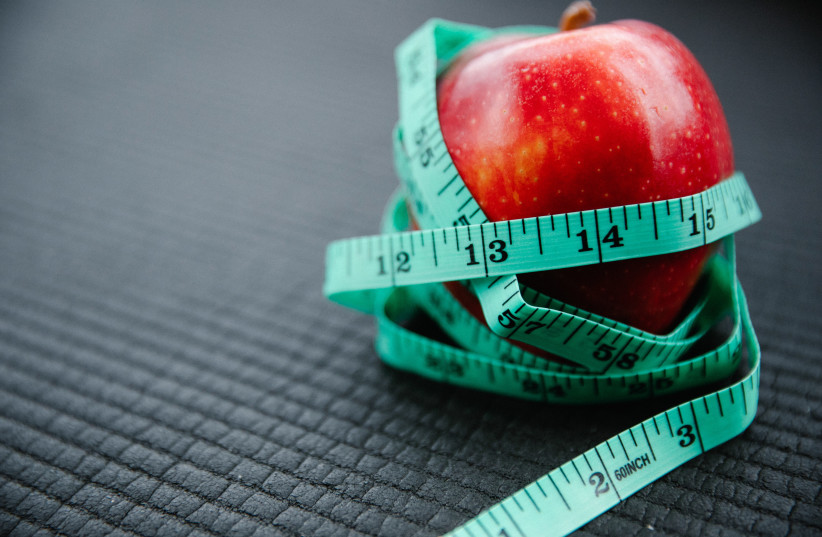The holidays are over, all the meals are behind us and we're ready to return to our routines. This is also the time when we start to think about fad diets.
We think, "Maybe I'll make an extreme move just for a few weeks." If these thoughts come to you, think again.
Fast diets work at first, it's true, but the weight won't stay off. The reason why is that our weight is the total weight of all our bodies, and it's important to consider the weight of all bodily fluids. This is why there's a large fluctuation in weight around the time we weigh ourselves throughout the day, as we may eat right before getting on a scale, or we might have drunk a liter of water.
If we don't drink water throughout the day we'll see weight loss. This isn't a decline we'll be happy with since losing weight alone won't give our bodies a nice shape.
Is carb reduction the way to go?
A promising way for quick weight loss is to eat fewer carbs. Our bodies store carbs as glycogen, among other things in the muscles, and glycogen storage in muscles is accompanied by fluid storage. So, a significant dilution of the carbohydrate reserves in muscle will lead to rapid weight loss.

Again, this method to lose weight isn't effective. Also, as soon as we start eating carbs or drinking water we'll gain back weight.
Quality weight loss is one in which most of the pounds we shed will be from fat reserves and not from drying up bodily fluids or emptying energy reserves.
This is why the number on the scale doesn't tell us the full story, and it's worth getting more information such as how much of the weight is adipose tissue. In other words, how much of our bodies is made up of fat? Losing weight mostly from fat mass is what will give us the look we hope for, and if we increase muscle mass, we can even look toned.
So what's the catch? Losing fat isn't a fast process. Quality weight loss will usually range from half a percent to a percent of body weight loss per week.
Fast dieting has significant health costs
Beyond the mental exhaustion that results from repeated diets, another element must be taken into account: the yo-yo effect.
Yo-yo dieting describes the pattern of losing weight, regaining it, and then dieting again for weight loss. This process causes weight to go up and down like a yo-yo. This type of diet is common: 10% of men and 30% of women have tried it.
The yo-yo effect has some very unwanted side effects, including damage to muscle tissue. During extreme weight loss diets, the body loses muscle mass as well as body fat, especially in diets where the consumption of calories and protein is extremely low. Because fat is returned more easily than muscle after weight loss, this can lead to more muscle loss over time, especially if you do crash diets frequently.
Beyond the decrease in physical strength that comes with losing muscle mass, the body also changes and turns from a healthy appearance to emaciated and thin. Losing muscle mass also has effects on our health such as a greater risk of injuries.
What's more harmful: being overweight or fad diets?
Studies claim that the yo-yo effect is more harmful to our health than the constant maintenance of a higher weight.
Losing weight can significantly improve one's health, especially for those with metabolic diseases such as diabetes, fatty liver, high and unbalanced blood pressure or high cholesterol levels. Losing weight helps us as it can improve sleep quality, mood and more.
Conversely, weight gain has the opposite effect. Yo-yo dieting is actually a frequent transition between weight gain and weight loss.
The subject is still controversial, but these studies that prove that yo-yo dieting is worse than being overweight are certainly cause for concern. One of the larger studies followed 505 men aged 55-74 for 15 years. Their weight fluctuations were found to be associated with an 80% higher risk of death during the study period whereas overweight and obese men who consistently maintained their excess weight were found to have a lower risk of dying and their risk of dying was at a rate similar to men of normal weight.
Of course, there's also the mental cost, which anyone who has done repeated diets like this knows. It's certainly frustrating to see the hard work we put into losing weight disappear. In fact, people with a history of yo-yo dieting report dissatisfaction with their lives and health more frequently.
So, how should you handle the excess weight gain from the holiday season, or at any time?
It may sound cliché, but the solution that usually works is to simply return to uour normal eating routine.
The difficulty during the holidays is the changing schedule, the extra lunches (both extra-often and extra-large), religious obligations which disrupt our regular fitness training and the desire to "celebrate" with an extra glass of wine or a special dessert.
When these disappear and routine returns, it's easier to return to our regular, better eating habits. This way, the excess calories that we consume are reduced, we return to exercising which burns more calories and then we'll be back to a healthy lifestyle and will look fit.
The author, who runs a private clinic, is a nutritionist and fitness trainer.
